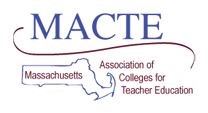01 Feb2016
By Shane P. Martin
The views expressed in this post do not necessarily reflect the views of AACTE.
With the signing of the Every Student Succeeds Act (ESSA) in December 2015, there was an intentional shift in power from the federal government to the states when compared with its predecessor, the No Child Left Behind Act. There is great value in having more autonomy and accountability at the state level, and in many ways California has been ahead of this curve in terms of a strong statewide approach that focuses on local control and multiple measures of effectiveness. Under the leadership of California Commission on Teacher Credentialing Chair Linda Darling-Hammond, the state has forged a new path around program quality and assessment, revising its policies and practices to focus on outcomes instead of inputs. In many ways, this shift anticipated what was put into law with ESSA.
01 Feb2016
By Deborah Koolbeck
On January 28, the U.S. Department of Education issued more guidance to states on transitioning from the No Child Left Behind (NCLB) Act to the Every Student Succeeds Act (ESSA), which was signed into law in December.
The new law requires the eight states without NCLB waivers to continue intervening in schools identified as being in need of improvement in 2015-16 through 2016-17. But they don’t have to set aside 20% of their Title I dollars to provide tutoring and school choice. Should these states forego the requirement, they will have to develop and implement a 1-year transition plan to ensure their local education agencies provide alternative supports for eligible students and schools with the highest need. Additional information will be sent to the nonwaiver states in the coming days or weeks. (The eight nonwaiver states are California, Iowa, Montana, Nebraska, North Dakota, Vermont, Washington, and Wyoming.)
19 Jan2016
By Jane E. West
Editor’s Note: This briefing has been postponed due to weather challenges. Please stay tuned for an announcement of the new date.
On Wednesday, January 27, the National Network of State Teachers of the Year (NNSTOY) will hold a congressional briefing to release its new study Teacher Advancement Initiatives: Lessons Learned From Eight Case Studies. Completed in conjunction with Pearson, the report is the product of a 3-year study of schools and districts with established career advancement initiatives. The study identifies components of successful, sustainable teacher career continuums with positive impacts on teacher recruitment, retention, and job satisfaction.
The eight case studies include schools and districts in urban and rural areas of Arizona, California, Colorado, the District of Columbia, Iowa, North Carolina, Tennessee, and Washington. The report identifies key elements of effective career continuums such as structured roles for teacher leaders, opportunities for release time and collaboration, compensation differentiation, peer coaching and evaluation, embedded professional development, and structured opportunities for teacher voice in decision making.
19 Jan2016
By Jerrica Thurman
 Last month, AACTE concluded its two-part online series on the Common Core State Standards (CCSS) with a webinar discussing preparation of preservice teachers for CCSS in mathematics. The webinar highlighted ways to engage candidates in thinking mathematically, figuring things out the way their PK-12 students will need to do, and using mathematics in context to better assist students in their learning.
Last month, AACTE concluded its two-part online series on the Common Core State Standards (CCSS) with a webinar discussing preparation of preservice teachers for CCSS in mathematics. The webinar highlighted ways to engage candidates in thinking mathematically, figuring things out the way their PK-12 students will need to do, and using mathematics in context to better assist students in their learning.
The webinar, “Preparing Teacher Candidates for Common Core State Standards in Mathematics: The Sequel,” was presented December 15 by Reuben Asempapa from Ohio University along with Fran Arbaugh from Penn State University and Cynthia Vavasseur from Nicholls State University, and moderated by AACTE Senior Director Linda McKee. They discussed strategies for program leaders to work on their campuses to educate mathematicians and mathematics educators about the CCSS in mathematics and to bring them together to effectively prepare future teachers:
12 Jan2016
By Carlette Jackson Hardin

On December 2, 2015, the members of the Tennessee Association of Colleges for Teacher Education (TACTE) held their collective breath as the Tennessee State Board of Education released the 2015 Report Card on the Effectiveness of Teacher Training Programs. After 5 years of publicity nightmares as programs’ ratings and rankings received widespread media attention, would this year’s report be any better?
Back in 2007, the Tennessee General Assembly passed legislation requiring the publication of a report on the effectiveness of educator preparation programs (EPPs) throughout the state. The report was to provide the following information on program graduates: placement and retention rates, Praxis II scores, and teacher effect data based on the Tennessee Value-Added Assessment System (TVAAS). Meghan Curran, director of Tennessee’s First to the Top programs, noted, “It is our intent that the report cards will help institutions identify both what they do well and where there is room for growth based on the outputs of their graduates.”
04 Jan2016
By Keyonna Summers
This post also appears on the University of Nevada, Las Vegas web site and is reposted with permission. Ed Prep Matters is featuring “Stories of Impact” to showcase AACTE member institutions with educator preparation programs that are making a positive impact in their communities and beyond through innovative practices. We are committed to sharing members’ success stories and encourage you to do the same.

Nevada Governor Brian Sandoval addresses the Summit on Nevada Education held at UNLV. (R. Marsh Starks/UNLV Photo Services)
Improving education in the Silver State and beyond was the focus of more than 250 educators, policy makers, and community leaders who gathered December 7 for the University of Nevada, Las Vegas (UNLV) inaugural “Summit on Nevada Education.”
The daylong conference, hosted by the UNLV College of Education (COE), drew decision makers from the local, state, and national levels to discuss policy opportunities in the wake of a landmark 2015 Nevada Legislative Session for education. Also front and center were Nevada’s role and impact on the national education conversation and the importance of partnerships to ensure quality education at all levels.
22 Dec2015
By Deborah Landry
Over 940 emergency credentials have been issued this year by the Oklahoma State Department of Education (OSDE) as a result of the statewide teacher shortage. A preliminary report issued December 10 by a state task force offers recommendations that aim to tackle the problem on multiple fronts.
The task force, formed by the OSDE to identify and recommend strategies for reducing the shortage, includes more than 60 legislators, OSDE staff, educators, business leaders, teacher organizations, education advocacy groups, and other community-based stakeholders. I represent teacher preparation programs on the task force, particularly through my role as president of the Oklahoma Association of Colleges for Teacher Education (OACTE), a state affiliate of AACTE.
15 Dec2015
By Kathleen McNamara

Political advocacy was the focus of much work this fall for the Massachusetts Association of Colleges for Teacher Education (MACTE). The national attention to teacher preparation policy, from the reauthorization of the Elementary and Secondary Education Act to the proposed teacher preparation program regulations, inspired our state chapter to respond in a big way. We were—and are—determined to tell our story.
As a first step, the MACTE Executive Board created a “take home document” to educate our elected officials, highlighting some of the current work of member institutions. We pointed out initiatives and programs that were specifically developed to meet the greatest needs of our PK-12 partners and, ultimately, the needs of the students in the commonwealth. To compile this document, we put a call out to all of our member institutions to tell us what they were doing across five main focus areas:
14 Dec2015
By Aaron Goldstein and Sungti Hsu
As 2015 comes to an end, we want to take a moment to reflect on what was a very active year for state policy makers and AACTE state chapters.
In 2015, state legislators proposed more than 150 bills related to educator preparation. Of these proposed bills, 18 were enacted into law. Some of the highlights of these new state laws are the creation of a new teacher leader endorsement in New Jersey; establishing the Teach Nevada Scholarship Program to incentivize students to pursue teaching degrees in Nevada; prohibiting video recording of classroom teachers in New Hampshire; and modifying teacher licensure standards in Delaware, Illinois, Maine, and Michigan.
10 Dec2015
By Zachary VanHouten and Aaron Goldstein
On December 8, the National Council on Teacher Quality (NCTQ) released its 2015 State Teacher Policy Yearbook, offering the council’s annual assessment of various state policies related to teacher quality. While the report’s focus and conclusions might not be surprising, they offer what might be a preview of what to expect from NCTQ’s upcoming 2016 Teacher Prep Review.
One of the areas of focus in the yearbook, for example, is “delivering well-prepared teachers.” NCTQ outlines 13 goal topics in this area and assigns a letter grade to each state. An overview chart (see below) summarizes the results.
08 Dec2015
By Julie Baker
The second annual Tennessee edTPA Conference was held November 12–13 at Tennessee Technological University in Cookeville. Attendees from 13 Tennessee institutions, and one guest from North Carolina, collaborated to learn more about edTPA and develop new skills to share with faculty, staff, and candidates on their campuses.
The growing interest in edTPA across the state was evidenced by this year’s attendance, which grew by about 10% to 130 educators. The busy first-day agenda included a keynote presentation on the recently released edTPA Administrative Report, 13 breakout sessions, and lunch conversations among attendees with similar responsibilities. The second day was equally full, with local evaluation training facilitated by Cathy Zozakiewicz from the Stanford Center on Assessment, Learning, and Equity.
01 Dec2015
By Jerrica Thurman
Join AACTE for a free webinar featuring recent work to prepare educators to teach the Common Core State Standards (CCSS) in mathematics. “Preparing Teacher Candidates for Common Core State Standards in Mathematics: The Sequel” will be held Tuesday, December 15, at 2:00 p.m. EST.
 With support from the Learning First Alliance’s Get It Right campaign, AACTE is offering a two-part webinar series highlighting the work of educator preparation programs to develop teachers ready to prepare PK-12 students for CCSS . The first webinar, held in October, focused on a successful effort to implement the standards in programs throughout Kentucky (view the recorded webinar here).
With support from the Learning First Alliance’s Get It Right campaign, AACTE is offering a two-part webinar series highlighting the work of educator preparation programs to develop teachers ready to prepare PK-12 students for CCSS . The first webinar, held in October, focused on a successful effort to implement the standards in programs throughout Kentucky (view the recorded webinar here).
The December webinar is the second in the series and also serves as a sequel to a major forum held at AACTE’s 66th Annual Meeting in 2014. Learn about successful methods, models, and technology tools used in preparing preservice teachers to implement CCSS mathematics standards in their classrooms.
17 Nov2015
By Jerrica Thurman
Ed Prep Matters is featuring “Stories of Impact” to showcase AACTE member institutions with educator preparation programs that are making a positive impact in their communities and beyond through innovative practices. We are committed to sharing members’ success stories and encourage you to do the same.
 The University of North Carolina (UNC) system offers the public a variety of data on its institutions’ work through the UNC Data Dashboard. A series of specialized pages provide overviews of areas from research and development to graduates’ job placement, all in the name of boosting transparency for taxpayers, students, and other stakeholders.
The University of North Carolina (UNC) system offers the public a variety of data on its institutions’ work through the UNC Data Dashboard. A series of specialized pages provide overviews of areas from research and development to graduates’ job placement, all in the name of boosting transparency for taxpayers, students, and other stakeholders.
17 Nov2015
By Amanda Lester
On November 3, the Wallace Foundation hosted a policy briefing in Washington, DC, to highlight findings from its recently released report, Developing Excellent School Principals to Advance Teaching and Learning: Considerations for State Policy. Commissioned by the Wallace Foundation and authored by Paul Manna, professor of government and policy at the College of William and Mary (VA), the report addresses the question What can state policy makers do to help ensure that schools have excellent principals who advance teaching and learning in their schools?
During the briefing, Manna presented findings from the report with a focus on the changing role of the principalship, the principal’s position as multiplier of effective teaching and leadership practice, and the impact of state policy making on principal effectiveness. Wallace Foundation President Will Miller underscored these perspectives in his introductory remarks: “There’s growing recognition that principals should no longer mainly be thought of as managers of buildings and bus schedules,” he said. “Indeed, effective leaders are their schools’ chief improvement officers—strengthening instruction, building a culture of high achievement, and supporting teachers and other educators to boost student performance.”
17 Nov2015
By Lori V. Quigley

On October 14-16, the New York Association of Colleges for Teacher Education (NYACTE) partnered with the New York State Association of Teacher Educators (NYSATE) to host a joint fall conference in Saratoga Springs, NY. The conference theme, Developing a Critical Consciousness to Affect Change in Teacher Education, captured the exemplary work of our colleagues who concentrate their energies on shaping policy in educator preparation, nurturing and sustaining PK-12 partnerships, adapting to changes in accreditation, and focusing on best practices.







 Last month, AACTE concluded its two-part online series on the Common Core State Standards (CCSS) with a webinar discussing preparation of preservice teachers for CCSS in mathematics. The webinar highlighted ways to engage candidates in thinking mathematically, figuring things out the way their PK-12 students will need to do, and using mathematics in context to better assist students in their learning.
Last month, AACTE concluded its two-part online series on the Common Core State Standards (CCSS) with a webinar discussing preparation of preservice teachers for CCSS in mathematics. The webinar highlighted ways to engage candidates in thinking mathematically, figuring things out the way their PK-12 students will need to do, and using mathematics in context to better assist students in their learning.


 The University of North Carolina (UNC) system offers the public a variety of data on its institutions’ work through the
The University of North Carolina (UNC) system offers the public a variety of data on its institutions’ work through the 